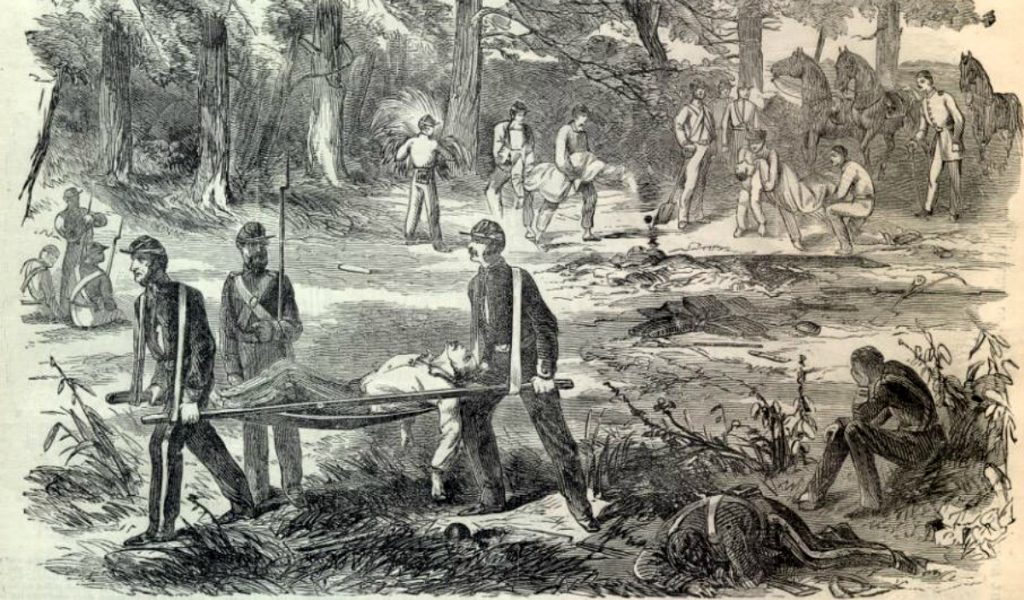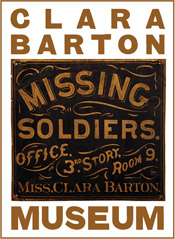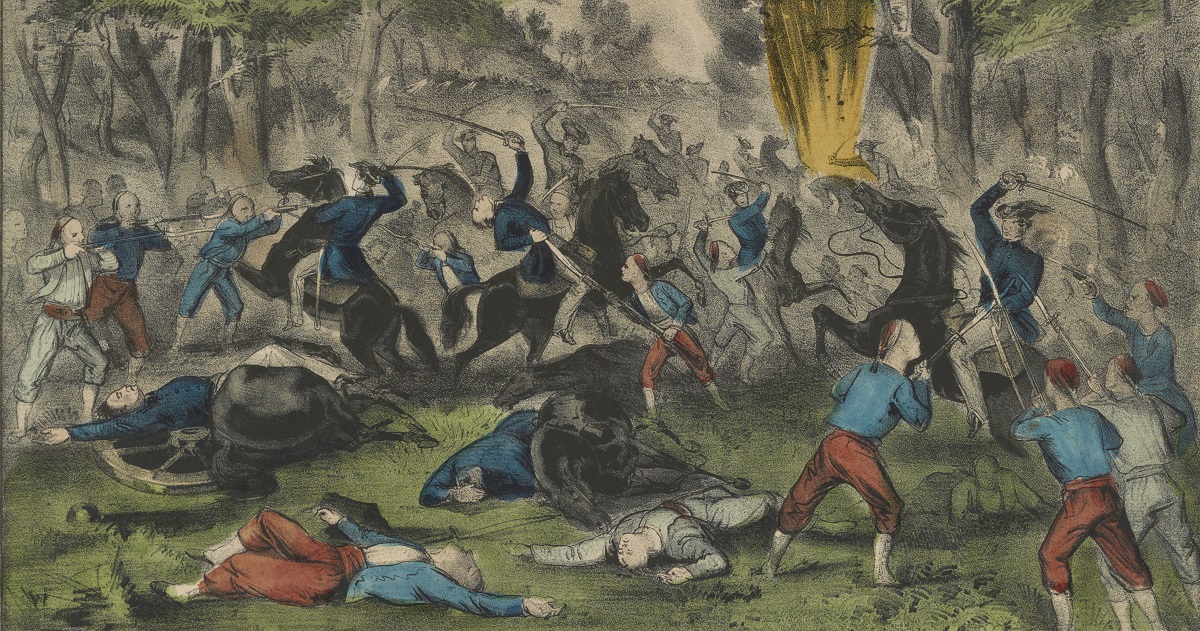“The Valley of Manassas was the Valley of Death” – Clara Barton Letter, July 1861
Penned to her father in the immediate aftermath of the First Battle of Bull Run, this letter reveals Clara Barton’s hopes and fears following a harrowing Union disaster on July 21, 1861. The apparently unfinished letter details scenes of confident troops marching in Washington immediately before the engagement and the chaos following defeat.
In total, the Union Army suffered more than 2,500 casualties that day, many of whom would be treated in makeshift hospitals in the nation’s capital. – Jake Wynn, Director of Interpretation
Washington D.C. July 22nd 1861
Monday Evening 6 o’clock P.M.
My dear father,
It becomes my painful duty to write you of the disaster of yesterday. Our Army has been unfortunate, that the results amount to a defeat we are not willing to admit, but we have been severely repulsed, and our troops returned in part to their former quarters in, and around the city. This has been a hard day to witness, sad, painful, and mortifying, but whether in the aggregate it shall sum up a defeat, or a victory, depends (in my poor judgment) entirely upon circumstances the tone and spirit in which it leaves our men, if sad and disheartened, we are defeated, the worst, and sorest of defeats, if roused to madness, and revenge, it will yet prove victory. But no mortal could look in upon this scene tonight, and judge of effects, how gladly would I close my eyes to it if I could. I am not fit to write you now. I shall do you more harm than good.
July 26th Friday noon. –
You will think it strange that I commenced so timely a letter to you and stopped so suddenly. But I did so upon more mature reflection. You could not fail to know all that I could have told you as soon as I could have got letters through to you, and everything was so unreliable, vague, uncertain, and I confidently hoped, exaggereated, that I deemed it the part of prudence to wait, and even now, after all this interval of time, I cannot tell you with certainty, and accuracy the things I would like to.
It is certain that we have at length had the “forward movement,” which has been so loudly clamored for and I am living witness of a corresponding Backward one, I know that our troops continued to go over into Virginia, from Wednesday until Saturday, noble, gallant handsome fellows, armed to the teeth, apparently lacking nothing. Waving Banners and Plumes and bristling Bayonets, gallant steeds and stately riders, the roll of the drum, and the notes of the Bugle, the farewell shout and martial tread of armed men, filled our streets, and saluted our ears through all those days.
These were all noble sights, but to me never pleasant, where I fain would have given them a smile and cheer, the bitter tears would come for well I knew, that though the proudest of victories perch upon our Banner, many a Brave Boy marched down to die, that, reach it when, and as they would, the Valley of Manassas was the Valley of Death.
Friday [brought] the particulars of Thursday’s encounter, we deplored but hoped for more care, and shrewder judgement next time, – Saturday brought rumors of intended Battle, and most conflicting accounts of the enemies strength, the Evening and Sunday morning papers told unreliably that he had 80,000 men, and constantly reinforced. My blood ran cold as I read it, least our Army be deceived, but then they knew it. The news came from them, surely they would never have the madness to attack from open field, an enemy of three times their number, behind entrenchments fortified by batteries, and marked at that, no this could not be, then we breathed freer, and thought of all the humane consideration, and wisdom of our time honored, have commanding Genl. That he had never needlessly sacrificed a man.

A scene from the First Battle of Bull Run on July 21, 1861 as wounded Union soldiers are evacuated from the battlefield. (Frank Leslie’s)
This letter can be found in the Clara Barton Papers at the Library of Congress Read the original letter
Want to read more about Clara Barton’s wartime experiences? Check out our biography of the famous Union nurse and relief worker who lived in Washington during the Civil War. Read it here


